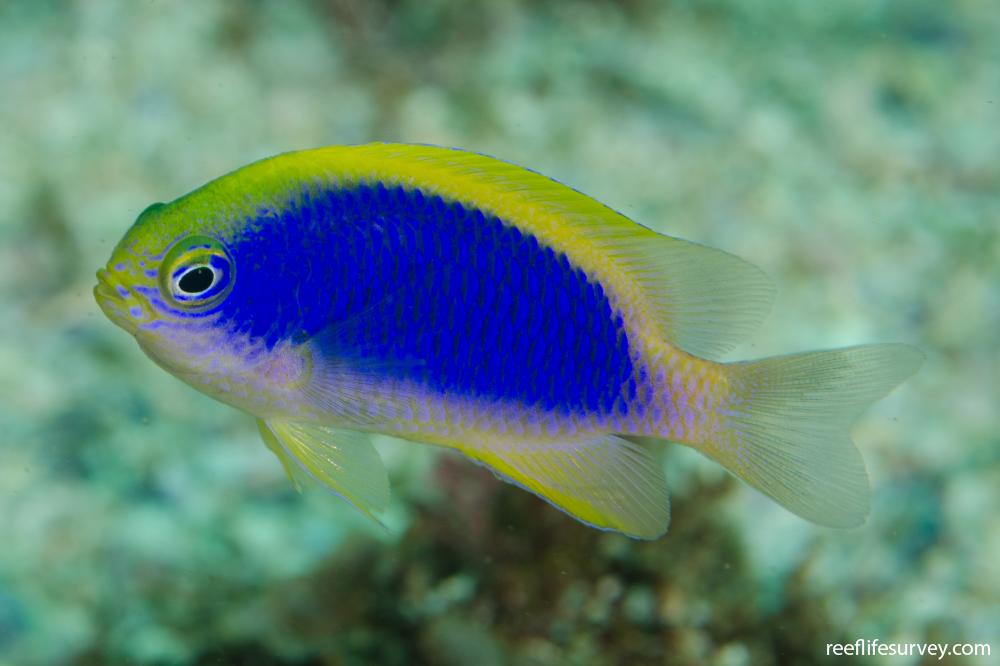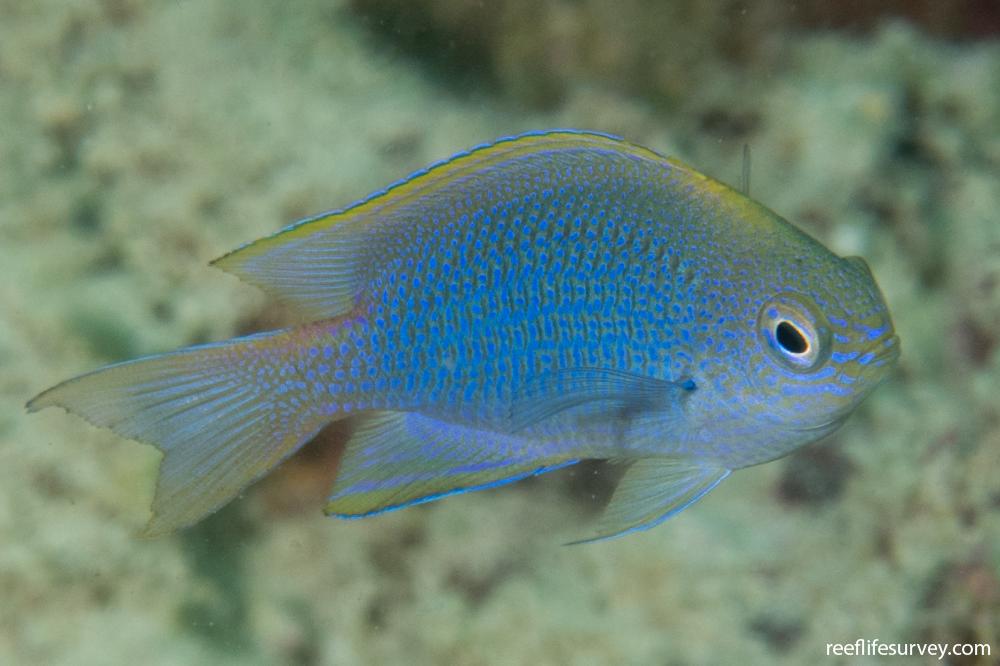Chrysiptera flavipinnis
Yellow-finned damsel | Yellow-finned DemoiselleSimilar Species
Same Genus
Distribution
Tropical Indo-Pacific
Description
Blue body with yellow/orange margins and dorsal, pelvic, anal and tail fins. Often yellow underside and snout also, giving the appearance of an entire outer ring of yellow. Similar Pomacentrus coelestis (Neon damsel) lacks yellow on back, and C. starcki (Starck's Demoiselle) has large, dark-edged scales and most fins on underside are blue. Chrysiptera bleekeri is recognised as a separate species, but is almost identical. The main differences are blue instead of yellow on the tail and anal fins and with a non-overlapping distribution further west and north through the Coral Triangle. Variations of C. flavipinnis exist, however, where these differences in colour appear far less distinctive (see image with blue variation), making distribution probably the only reliable way of separating these species under the current taxonomy.
Information
Max Size: 8 cm
Sea Temperature Range: 18.1-29.7°C
Depth: 3-38m
Habitat Generalization Index: 3.77
Also referred to as the SGI (Species Generalisation Index), this describes the habitat niche breadth of the species. Species with values less than 15 are found in a relatively narrow range of reef habitat types (specialists), while those over 25 may be found on most hard substrates within their range (generalists). Learn more here.
Conservation and Rarity
IUCN Status: Least Concern
Occurrence: Infrequent (9.9% of sites)
Occurrence describes how often the species is found on surveys within its distribution. It is calculated as the % of reef sites surveyed by RLS divers across all the ecoregions in which the species has been observed
Abundance: Many (20 per transect)
Abundance is calculated as the average number of individuals recorded per RLS transect, where present.




























